Top 10 Policies Influencing CSR in 2020
2021-01-06GoldenBeeGoldenBee0
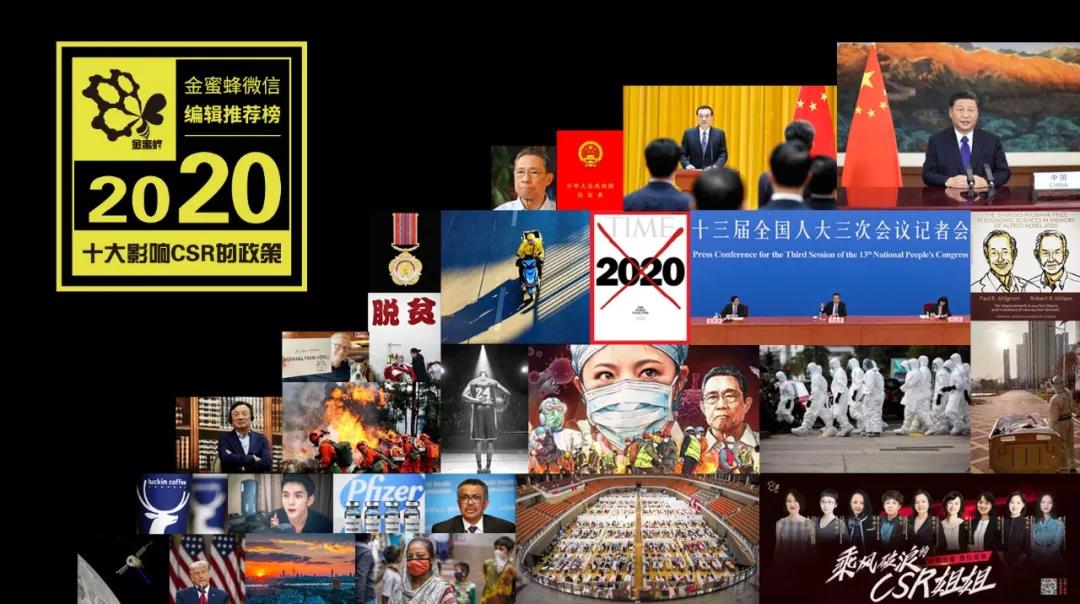
The year 2020 is marked by changes unseen in a century. Under the background of the outbreak of COVID-19, changing trading environment, technological development, business upgrade, and more expectations on people's livelihood, various policies and regulations have been frequently proposed; excellent practices have emerged; domestic and foreign cooperation also has been deepened.
The cause of CSR also strives forward. With more responsible and sustainable actions, GoldenBee also made great efforts to make the society, business and the world become better.
No. 1 Guiding Opinions on Building a Modern Environmental Governance System issued
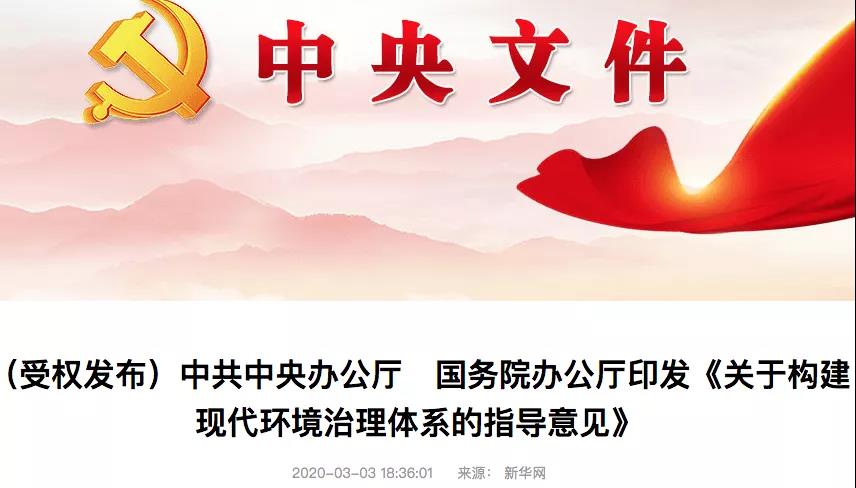
The General Office of the CPC Central Committee and the General Office of the State Council issued the Guiding Opinions on Building a Modern Environmental Governance System. The main objectives are as following: By 2025, China will establish and improve the leadership responsibility system, corporate responsibility system, national action system, supervision system, market system, credit system, laws, regulations and policy system of environmental governance, implement various types of subject responsibilities, and increase the enthusiasm of market and public engagement, and form an environmental governance system with clear guidance, scientific decision-making, strong execution, effective incentives, multiple participation, and positive interaction.
The Opinions makes it clear to carry out target evaluation and assessment, deepen the supervision of environment protection, implement a management system of pollution discharge permit, promote the greening of production services, disclose environmental governance information, and improve public environmental awareness. Except for major events organized by the state, localities must not take measures to stop production or limit production for enterprises due to conferences, forums, and large-scale events. (Xinhua News, March 3, 2020)
No. 2 Poverty Alleviation Through Consumption - 2020 Action Plan issued
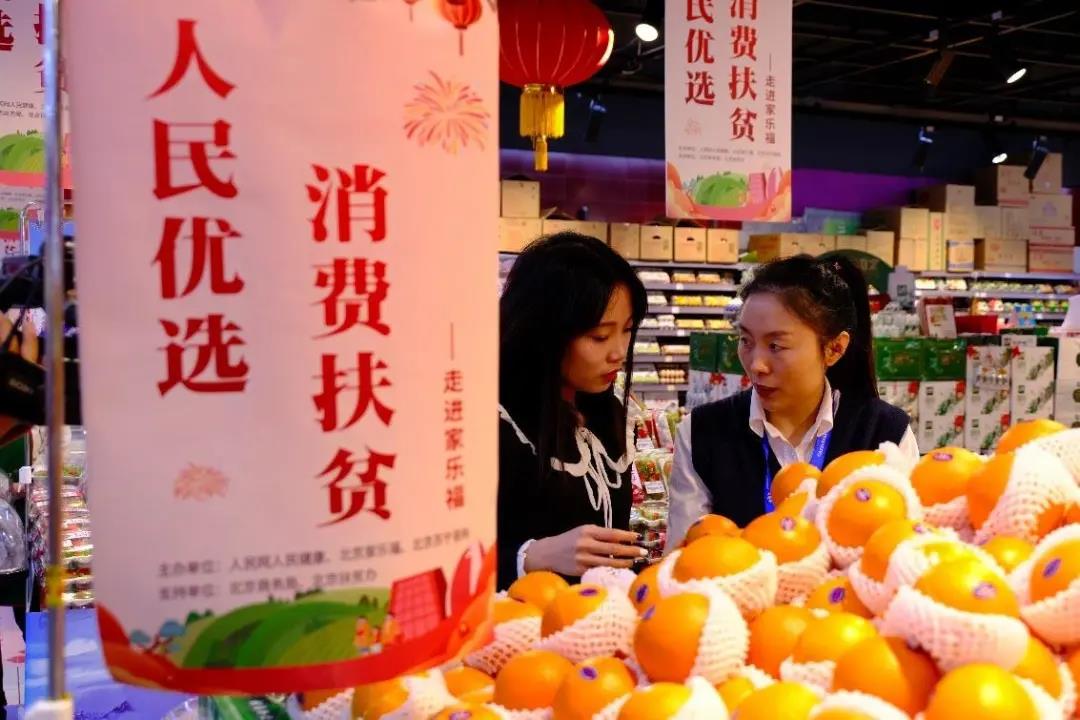
The National Development and Reform Commission has issued Poverty Alleviation Through Consumption - 2020 Action Plan recently. Together with the Publicity Department of the Communist Party of China and other 26 departments, 30 specific actions will be carried out to contribute to the fight against poverty.
The Plan points out that all departments and units should integrate resources to jointly overcome difficulties that restrict the role of production, circulation and consumption in poverty alleviation, actively link the production and marketing, effectively solve the problem of slow sales of agricultural and animal products in poor areas, promote local tourism through various channels, and minimize the economic impact brought about by COVID-19.
The Plan also emphasizes that officials should strengthen the coordination of all related departments to track and monitor the pandemic impacts on agricultural products sales as well as tourism industries in poor regions. The government should incorporate poverty alleviation through consumption into their annual work plan, and encourage the media to increase the publicity and promotion of consumption practices in the fight against poverty, in order to make sure that policies and key tasks are implemented.(NDRC, Mar 18, 2020)
No. 3 Beijing 2022 Sustainability Plan released


Beijing Organising Committee for the 2022 Olympic and Paralympic Winter Games (Beijing 2022) published the Beijing 2022 Olympic and Paralympic Winter Games Sustainability Plan (hereinafter referred to as Sustainability Plan) on May 15, 2020. The plan serves as a programmatic document guiding the sustainability work of the Beijing 2022 and is being implemented throughout the entire process of the Games.
The plan promotes the Beijing 2022 sustainability vision of “Sustainability for the Future” and the overall objective of “creating a new example for staging events and regional sustainability”, featuring three key themes of "Positive Environmental Impact", "New Development for the Region", and "Better Life for the People". These three themes are supported by 12 actions, under which there are 37 key tasks consisted of 119 specific measures that cover the environment of the competition zones, regional development, and improvement of well-being for host communities. The sustainability plan reflects the Beijing 2022 mission of being “green, inclusive, open and clean”, and the reforms introduced through Olympic Agenda 2020 - the strategic roadmap for the future of the Olympic Movement. ( Beijing 2022 Website, May 15, 2020)
No. 4 Master Plan for National Key Ecosystem Protection and Restoration launched
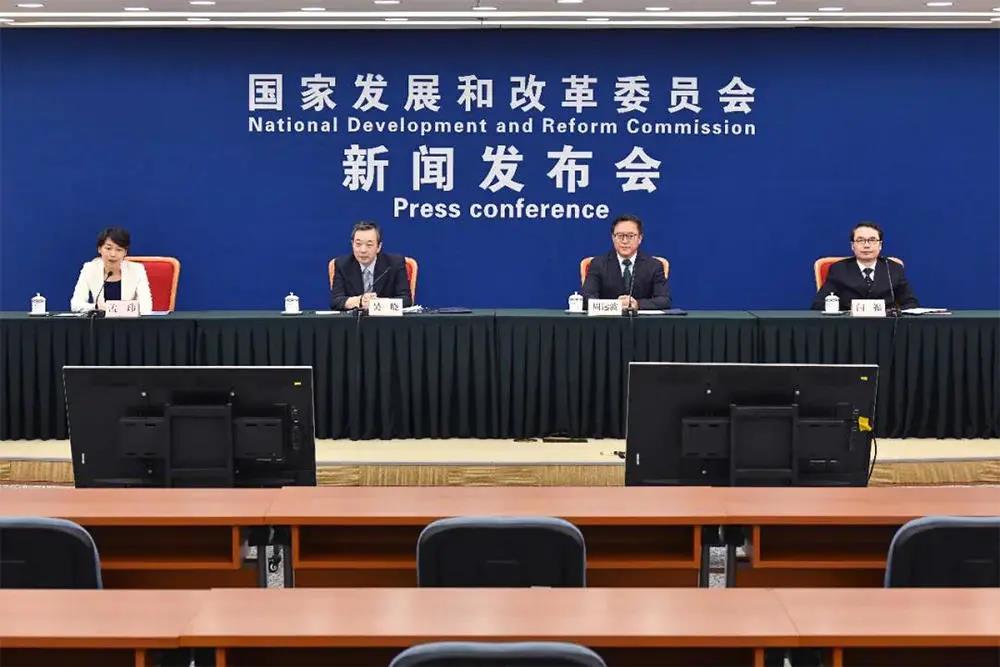

China’s National Development and Reform Commission (NDRC) and the Ministry of Natural Resources (MNR) jointly released the Master Plan for National Key Ecosystem Protection and Restoration Major Protects (2021-2035) (herein referred to as the “Master Plan”) on June 11, 2020. In an effort to strengthen the shields for ecological security and protect biodiversity, nine major projects with 47 key tasks have been underlined in the plan.
Nine major projects on ecological protection and restoration covers all seven key ecosystem areas including Qinghai-Tibet Plateau, key ecological regions of the Yellow River (including the ecological barrier of the Loess Plateau), key ecological regions of the Yangtze River (including Sichuan-Yunnan ecological barrier), northeast forest belt, northern sand control belt, hilly and mountainous areas in the south coastal zone.
Following the Master Plan, detailed and actionable roadmaps for the nine major projects are set to be developed. 47 specific actions are developed for two single projects, the construction of protected area and major projects for wildlife protection, and ecological protection and restoration supporting system. Meanwhile, supporting policies for land and space use control, major project input mechanism and multi-benefit of ecological resources are also refined.( Sino-German Cooperation On Climate Change, Environment, And Climate Friendly Urban Development, June 16, 2020)
No. 5 Guidelines to Accelerate the Standardization Process of Green Packaging in the Express Delivery Sector issued


The State Administration for Market Regulation (SAMR), National Development and Reform Commission, Ministry of Science and Technology, Ministry of Industry and Information Technology, Ministry of Ecology and Environment, Ministry of Housing and Urban-Rural Development and State Post Bureau jointly have issued the Guidelines on Accelerating the Standardization Process of Green Packaging in the Express Delivery Sector recently, planning for work in next three years.
Following the requirement of making the delivery packages “greener, fewer and recyclable”, the Guidelines proposes the overall goal of the standardization of green packing in the express delivery sector and lists eight key tasks in four aspects including standards system optimization, key standards development, implementation supervision and standard internationalization. The Guidelines will accelerate the process of standardizing new materials, technologies and products to develop a green packaging governance system, under which standards will be in coordination with regulations.
Next step, SAMR will continuously develop and release a number of standards based on green concept and design a standard system covering the entire process of design, materials, production, usage, evaluation, recycling and disposal, letting the Guidelines fuel the “green revolution” of express delivery packages. (SAMR, Aug 9, 2020)
No. 6 Ministry of Commerce: Hotels and B&Bs nationwide no longer offer free single-use plastic items


Recently, Ministry of Commerce issued a notice titled Further Strengthening Plastic Pollution Control in Business Fields to announce the phased tasks of banning and limiting plastics. It requires that by the end of 2020, star hotels and guesthouses will no longer offer disposable plastic products. By the end of 2025, the implementation will extend to all hotels and Bed & Breakfast operators.
According to the Notice, by the end of 2020, non-degradable straws will be banned in the catering industry nationwide and non-degradable single-use plastic tableware will be banned in dine-in catering services at urbanized area of the cities at and above prefecture level. By the end of 2025, the use of non-degradable disposable plastic tableware will be prohibited in the catering services in the built-up county area, and the consumption intensity of non-degradable disposable plastic tableware in the catering and take-out area of cities above the prefecture level will decrease by 30%. (People.com.cn, Sep 2, 2020)
No. 7 China’s first green finance regulation released


China's first law and regulation in the field of green finance, the Shenzhen Special Economic Zone Green Finance Regulations, has been voted by the Shenzhen Municipal People's Congress Standing Committee meeting recently. It will be effective on March 1, 2021.
The regulation clarifies the main responsibilities of financial institutions and eco-freindly enterprises in management, investment, information disclosures. It also stipulates the supervision and management measures of government departments and central financial regulatory agencies in Shenzhen, being seen as a pioneer in green finance, both domestically and internationally. The mandatory requirement of disclosing environmental information is one of the key highlights.
At the same time, the regulation delegates local financial authority rights in punishing unlawful behaviors in setting internal green management, conducing green investment evaluation and environmental information disclosure, thus standardizing and strengthening the regulatory function in the field of green finance and create a good legal environment. (People.com.cn, Nov. 2, 2020)
No. 8 SAMR solicits opinions on the Guidelines for Anti-monopoly in the Field of Platform Economy


On November 10, the State Administration of Market Supervision (SAMR) of China issued the draft of the Guidelines for Anti-monopoly in the Field of Platform Economy, aiming to prevent and stop the monopoly of Internet platforms and promote the sustainable and healthy development of the online economy.
Practices including “choose one between two” requirements, through which brands are not allowed to be sold on competing platforms, or “using big data analysis to price products to the disadvantage of existing customers” are identified as monopoly. After the Double 11 shopping carnival, SAMR would launch a batch of measures to discipline online markets, marking that a comprehensive regulatory system is about to be formed.
SAMR is now revising the Guidelines based on public opinions solicited. The Guidelines will strengthen the operability and predictability of the anti-monopoly laws to guarantee fair and orderly competition. (SAMR, Nov 10,2020)
No. 9 Notice on the Plan to Help the Elderly Solve Problems in Using Smart Technologies issued
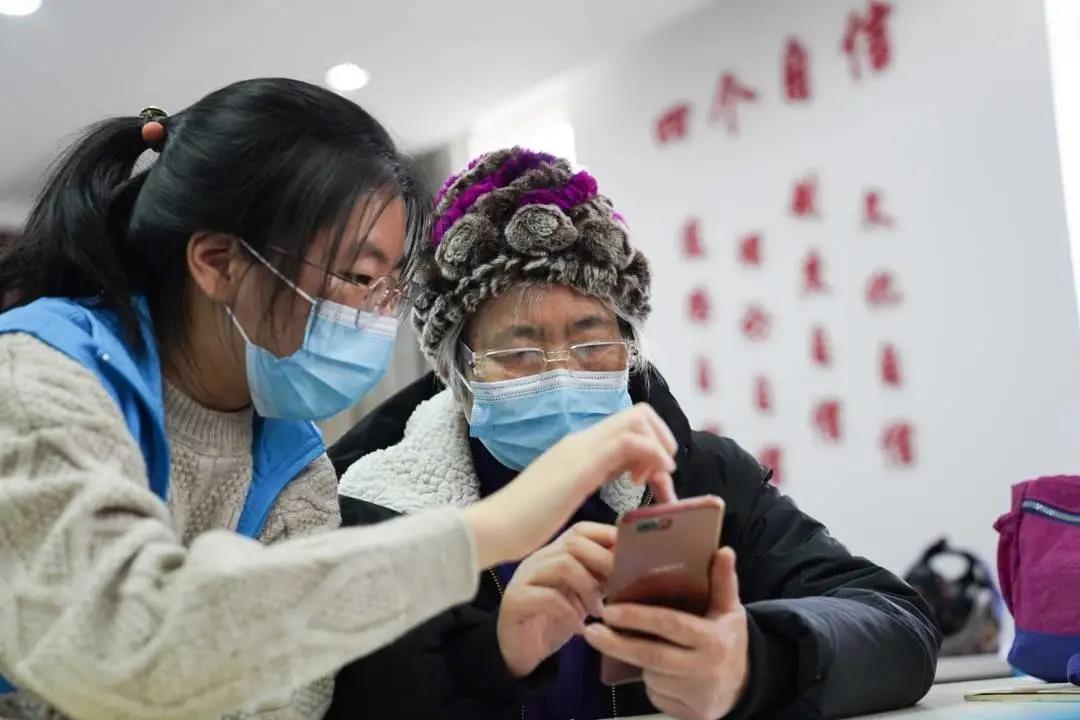

The General Office of State Council issued a notice on the plan specifying measures to help the elderly overcome barriers to using smart technologies. It states that no business may refuse cash by means of standard clauses, notices, statements, notices, etc. The plan also requires to improve face-to-face services and indicates that retail shops, restaurants, shopping malls, parks and other places frequented by older people should allow them to pay in cash and bank card. Payment for public services such as utilities and administrative services should also allow cash and bank card.
On November 26, Ministry of Industry and Information Technology introduced measures to help the elderly cross digital divide, which include
- Retaining and improving traditional face-to-face telecommunication services and guiding enterprises to offer beneficial data packages for the elderly
- Conducting a one-year special action to make internet applications more suitable for the elderly and encouraging enterprises to design more senior-friendly products.
(Xinhua News, Nov 24, 2020)
No. 10 Three new national standards of social responsibility officially implemented


On December 14, 2020, China officially issued and implemented three new national standards of social responsibility, which are GB/T39604-2020 Social responsibility management systems—Requirements with guidance for use, GB/T 39626-2020 Guidance on the implementation of social responsibility for third party e-commerce trading platform industry and GB/T 39653-2020 Using GB/T 36000 in management systems.
GB/T 39604 and GB/T 39653 provide further guidance for organizations to conduct social responsibility management. GB/T 39626 guides e-commerce trading platform industry in applying GB/T 36000 and other basic social responsibility national standards.
Best Practices
- The 100-year brand — Air Liquide also has a sense of juvenile
- Beijing Public Transportation Corporation: Developing green transportation to build a harmonious and livable capital
- CGN: Building a modern factory in barren deserts and developing a new win-win cooperation model along “Belt and Road”
Upcoming Event

All the materials on the site “Source: XXX (not from this site)” have been reprinted from other media. They do not imply the agreement by the site.
All the materials with “Source: CSR-China Website” are the copyright of CSR-China Website. None of them may be used in any form or by any means without permission from CSR-China Website.
GoldenBee Official WeChat
Copyright © Csr-china.net All Right Reserved.
京ICP备19010813号










